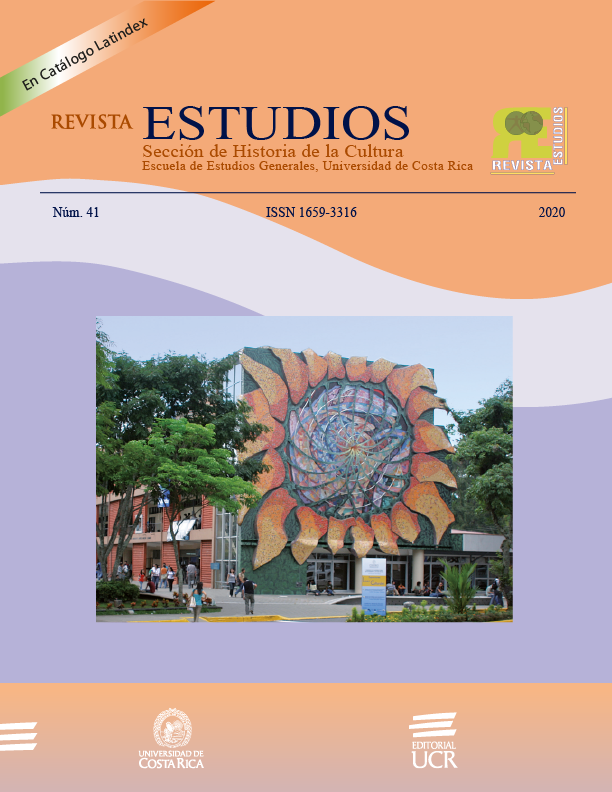Abstract
Abstract: There is no doubt that one of the primary objectives of a marketing campaign is to position or reposition a good or service in the minds of its consumers. However, what happens when the technique used turns out to be perceived as a deceptive action? Greenwashing is a technique that some companies have used in recent years to consider themselves as green brands, even if this means proposing actions that are not consistent with their production policies. Thus, this article seeks to make a theoretical approach to green marketing and greenwashing, seeking to reflect on conscious consumers and how these types of actions can be counterproductive for the new generations of buyers when brands are pointed out as incongruent, affecting their reputation and image.
References
Referencias
Aguilar, A. E. (2017). Marketing verde, una oportunidad para el cambio organizacional. Realidad y Reflexión, 16(44), p. 92-106. https://doi.org/10.5377/ryr.v44i0.3567
Aldred, J. (2016). Microplastics: Which beauty brands are safe to use? The Guardian. Recuperado de https://www.theguardian.com/environment/2016/apr/19/microplastics-which-beauty-brands-are-safe-to-use
Butler, R. (2010). Groups call on KFC to end greenwashing. Mongabay.com Recuperado de https://news.mongabay.com/2010/12/groups-call-on-kfc-to-end-greenwashing/
Claudino, E. S. y Talamini, E. (2013). Analise do Ciclo de Vida (ACV) aplicada a los agronegocio - Uma revisao de literatura. Revista Brasileira de Engenharia Agricola e Ambiental, 17(1), p. 77–85. http://doi.org/10.1590/S1415-43662013000100011.
Connect Americas (2018) Organización con enfoque sustentable. Las páginas verdes. Connect Americas. Recuperado de https://connectamericas.com/es/company/las-paginas-verdes
Frost, R. (2019). Vogue features Zara's sustainability pledge, but is it greenwashing? Euro news. Recuperado de https://www.euronews.com/living/2019/07/17/vogue-feature-zara-s-sustainability-pledge-but-is-it-greenwashing
García-Lombardía, P. (2020). 'Greenwashing’ ser o no ser verde. Harvard Deusto Márketing y Ventas. Recuperado de https://www.harvard-deusto.com/greenwashing-ser-o-no-ser-verde#:~:text=M%C3%A1rketing%20y%20Ventas%20(N%C3%BAm.&text=El%20greenwashing%20es%20una%20pr%C3%A1ctica,se%20presume%20es%20verdaderamente%20nimio.
Goddard, S. (2020). The Green Starbucks Cup: Green or Greenwashing? Green that life your guide to a sustainable lifestyle. Recuperado de https://greenthatlife.com/green-starbucks-cup-green-or-greenwashing/
Gutiérrez-Bonilla, R.E. y Hernández-Lobato, M. (2014). El desarrollo humano sostenible y los cambios que deberán realizar las empresas. Ciencia administrativa, (2). Recuperado de https://www.uv.mx/iiesca/files/2014/12/02CA201402.pdf
Hallama, M., Montlló-Ribo, M., Rofas-Tudela, S. y Ciutat-Vendrell, G. (2011). El fenómeno del greenwashing y su impacto sobre los consumidores propuesta metodológica para su evaluación. Aposta. Revista de Ciencias Sociales, (50), p. 1-38.
Hotten, R. (2015). Volkswagen: The scandal explained. BBC News. Recuperado de https://www.bbc.com/news/business-34324772
Kantar Worldpanel (2017). 5 de junio: Día Mundial del Medio Ambiente. Kantar Worldpanel. Recuperado de https://www.kantarworldpanel.com/mx/Noticias-/5-de-Junio-Dia-Mundial-del-Medio-Ambiente
Kantar Worldpanel (2018). Consumer Thermometer. Kantar Worldpanel. Recuperado de https://www.kantarworldpanel.com/mx/Noticias-/Consumer-Thermometer-
Kleinman, D. (2016). Volkswagen podría enfrentar una multa de 18,000 mdd. Forbes México. Recuperado de https://www.forbes.com.mx/lo-que-una-multa-de-18000-mdd-a-vw-puede-dejarle-al-mundo/
Lozanova, S. (2009). Starbucks Coffee: Green or Greenwashed? GreenBiz. Recuperado de https://www.greenbiz.com/article/starbucks-coffee-green-or-greenwashed
MacDonald, S. (2019). Greenwashing de la imagen de las empresas cosméticas. Repositorio Comillas. Recuperado de https://repositorio.comillas.edu/xmlui/handle/11531/32674
Macías-Pérez, L. (2020). Efecto Greta: evolución de consumidor verde a consumidor consciente. Universidad Complutense de Madrid. Tesis de Grado en Administración y Dirección de Empresas. Recuperado de https://eprints.ucm.es/61485/
Marcas con Valores (2020). III Estudio Marca con Valores. El poder del consumidor ciudadano. Ciudad de México: 21 gramos
Marketing Directo (2019). Greenwashing: No es verde todo lo que reluce. Marketing Directo.com. Recuperado de https://www.marketingdirecto.com/marketing-general/marketing/greenwashing-no-es-verde-todo-lo-que-reluce
Monteiro, T. A., Giuliani, A. C., Cavazos-Arroyo, J., Kassouf-Pizzinatto, N. (2015). Mezcla del marketing verde: una perspectiva teórica. Cuadernos del CIMBAGE, (17), p. 103-116.
Novillo-Díaz, L. A., Pérez-Espinoza, M. J., & Muñoz, J. C. (2018). Marketing verde, ¿tendencia o moda? Revista Universidad y Sociedad, 10(2), p. 100-105.
Partridge, K. (2015). VW Scandal Just the Tip of the Greenwashing Iceberg. Columbia Business School. Recuperado de https://www8.gsb.columbia.edu/articles/ideas-work/vw-scandal-just-tip-greenwashing-iceberg#:~:text=The%20Volkswagen%20scandal%2C%20deriving%20from,the%20reality%20is%20the%20opposite.
Peattie, K., Charter, M. (2003). “Green Marketing” en: Baker Michael (ed.) The Marketing Book, p. 726-756. Oxford: Butterworth Heinemann
Plungis, J. (2015). Forty years of greenwashing: The well-travelled road taken by VW. Independent. Recuperado de https://www.independent.co.uk/news/business/analysis-and-features/volkswagen-emissions-scandal-forty-years-of-greenwashing-the-well-travelled-road-taken-by-vw-10516209.html
Portugal-Mendiguri, M. D. (2019). Marketing verde y su relación con la imagen de marca. Grado académico de Bachiller en Ciencias Económico Empresariales. Recuperado de http://repositorio.ucsp.edu.pe/bitstream/UCSP/16031/1/PORTUGAL_MENDIGURI_MEL_MAR.pdf
Sánchez-Castañeda, J. (2014). Contextualización y enfoques en el estudio de comportamientos proambientales o ecológicos con miras a la perfilación del consumidor verde. Suma de Negocios, 5(10), p. 34-39. https://doi.org/10.1016/S2215-910X(14)70007-2
The Fashion Law (2016). Zara Boasts New Eco-Friendly Flagship, H&M Focuses on Diversity. The Fashion Law. Recuperado de https://www.thefashionlaw.com/zara-open-new-eco-friendly-flagship-greenwashing-much/
Venegas, E. (2019). 7 de cada 10 mexicanos opta por productos ecológicos. La Razón. Recuperado de https://www.razon.com.mx/negocios/7-de-cada-10-mexicanos-opta-por-productos-ecologicos/
Viteri-Luque, F., Herrera-Lozano, L. A., y Bazurto-Quiroz, A. F. (2017). Las Tendencias del Marketing: Cuáles son y definiciones. RECIMUNDO: Revista Científica de la Investigación y el Conocimiento, 1(5), p. 974-988. https://doi.org/10.26820/recimundo/1.5.2017.974-988
White, K., Hardisty, D., & Habib, R. (2019). The Elusive Green Consumer. Harvard Business Review, (7). Recuperado de https://hbr.org/2019/07/the-elusive-green-consumer


